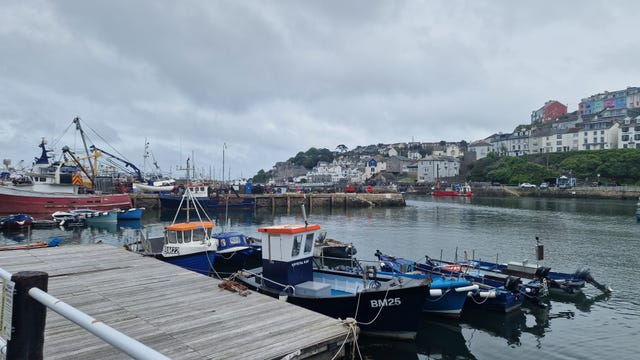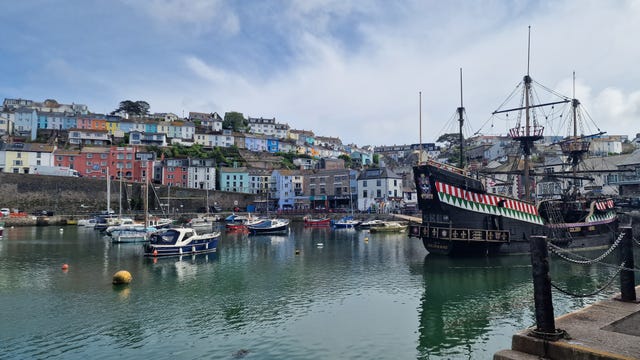Thousands of Brixham residents told they can safely drink tap water again
South West Water said around 14,500 households in the Alston supply area can now use their tap water safely.

Thousands of people can now safely drink their tap water again after days of being told to boil it first following a parasite outbreak, the region’s water supplier has announced.
About 16,000 households and businesses in the Brixham area of Devon, supplied by South West Water (SWW), had been told not to use their tap water for drinking without boiling and cooling it first.
The UK Health Security Agency (UKHSA) said on Friday that 46 cases of cryptosporidium, a disease which can cause unpleasant symptoms such as diarrhoea and vomiting, had been confirmed in the town and that more cases were anticipated.
SWW said around 14,500 households in the Alston supply area can now use their tap water safely, although some 2,500 properties in Hillhead, upper parts of Brixham and Kingswear should continue to boil their supply before drinking it.
The water company said the decision on Saturday afternoon came after “rigorous testing” and was made in consultation with the UK Health Security Agency (UKHSA) and the local authority’s environmental health department.

The microscopic parasite which caused the waterborne disease likely entered the water network through a damaged air pipe in a field containing cattle, the company previously said.
SWW chief customer officer Laura Flowerdew said: “Following rigorous testing this week, it is now safe to lift the boil water notice in the Alston water supply area. This decision has been supported by the Government’s public health experts and the local authority’s environmental health department.
“This situation has caused an immense amount of disruption, distress and anxiety. We are truly sorry this has happened.
“The public rightly expect a safe, clean and reliable source of drinking water and on this occasion, we have fallen significantly short of expectations. We will not stop working until this has been fully resolved.
“With the boil water notice still in place in Hillhead, upper parts of Brixham and Kingswear, we are urging customers who are unsure if they are still affected to visit the postcode checker on our website or call us so we can check for them.”
SWW added that an additional £100 compensation will be paid to customers in the areas which continue to be affected – bringing the total to £215.
The number of confirmed cases of cryptosporidium is expected to continue rising, the area’s top public health official warned.
Dr Lincoln Sargeant, Torbay’s director of public health said symptoms of the disease “can take up to two weeks” to develop, meaning “reported numbers of those affected may rise in the coming week even though we are lifting the boil water notice in some areas”.
Conservative MP Anthony Mangnall, whose Totnes constituency includes Brixham, had previously told the PA news agency that SWW’s response to the outbreak was “contemptible and just generally incompetent”.

Responding to the announcement that thousands of households can now safely drink their tap water, he said: “The illness suffered and inability to access safe drinking water has been totally unacceptable.
“The continued boil water notice for residents relying on the Hillhead reservoir must be accompanied by a further increase in support and compensation from South West Water.
“It is my priority to see this situation resolved as quickly as possible and that those who are suffering from illness receive the support they need.”
Water minister Robbie Moore said he was “still receiving regular updates” from the water company, adding: “We need South West Water to resolve this issue and ensure clean water returns to the Brixham area as soon as possible.”
SWW said it will continue to offer bottled water at three stations in the area, having so far provided 386,000 bottles of water to customers.
Residents had been urged to boil water and let it cool before drinking it, preparing or cooking food or cleaning their teeth, although the company said water can continue to be used as normal for washing, bathing and flushing the toilet.
The disease can be picked up directly from the faeces of another person or animal, from swimming in or drinking contaminated water, or by eating contaminated food such as unwashed vegetables.





